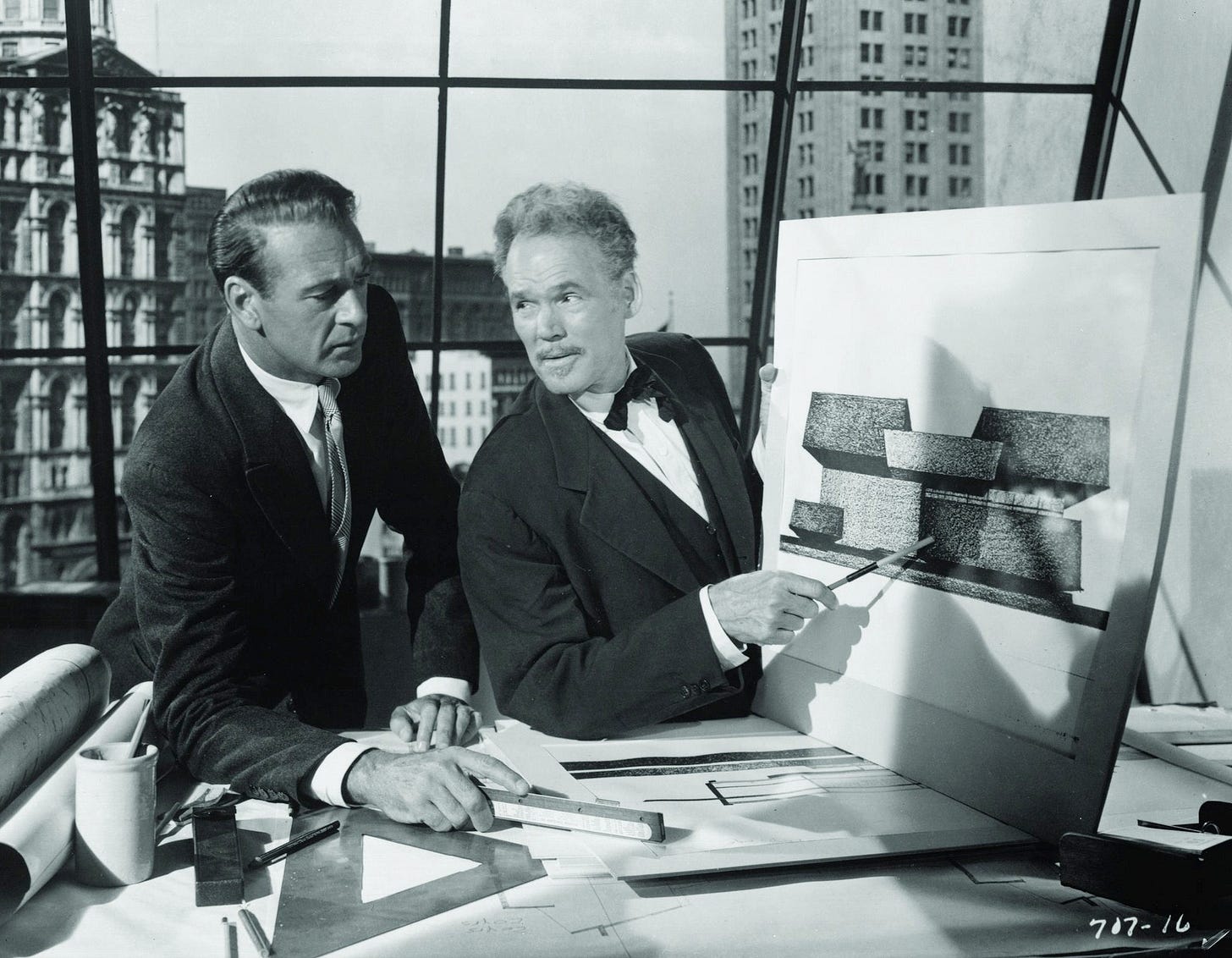Respectability vs. Vanity
Howard Roark as Exemplar of Smithian Pride

In my last piece, I explored how Adam Smith locates vanity as the motivation of most people’s industry, striving, and behavior. Even ne’er-do-wells like Homelander want to be seen as respectable, despite wanting in respectability. Now to address that piece’s cliff-hanger: does vanity motivate genuinely respectable men and women?
Smith posits that the wise and virtuous are not vain but proud, i.e., “convinced of [their] own superiority.”1 Moreover, in stark juxtaposition to the vain, “the proud man… never flatters, and is frequently scarce civil to any body.”2 The proud possess the respectable virtues of truth, integrity, honor, steady friendship, and “inflexible firmness and resolution.”3 They value these attributes instrinsically, without regard to the good effects they often produce: wealth, respect, etc. They are proud to know they have conducted themselves respectably and are largely apathetic to the opinions of others.
A fan of Ayn Rand’s fiction and the heroes therein, I was instantly made to think of Howard Roark. Roark, like his mentor Henry Cameron, is an architectural genius who refuses to compromise his values of independence, judgment, and reason in order to achieve the respect of others. Roark’s commitment goes so far as to force him into a life of sheer asceticism as he and Cameron struggle, and ultimately fail, to make ends meet. Rand states Roark’s indifference explicitly: “I don't give a damn what any or all of them think about architecture-or about anything else, for that matter.”4
The only people whose opinions (and company) Roark values is that of penniless Cameron and Mike, an incredibly competent construction worker—note that the socioeconomic class and formal education is irrelevant to Objectivists. Rand’s heroes understand that “they are the wise and virtuous chiefly… who are the real and steady admirers of wisdom and virtue” and that “the great mob of mankind are the admirers and worshippers… of wealth and greatness… abstracted from merit and virtue.”5
Rand’s heroes, as exemplified by Roark and predicted by Adam Smith, concern themselves not with achieving respect, but with achieving respectability. In this way, the proud are superior to the vain, for they can always be counted upon to practice virtue irrespective of extrinsic conditions.
Adam Smith, Theory of Moral Sentiments, VI.iii.33.
Adam Smith, Theory of Moral Sentiments, VI.iii.40.
Adam Smith, Theory of Moral Sentiments, VI.iii.43.
Ayn Rand, The Fountainhead, Chapter 1.
Adam Smith, Theory of Moral Sentiments, I.iii.3.2-4.

